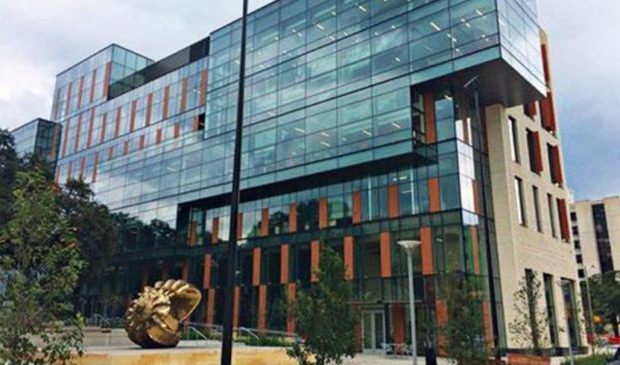Med school seeks more ideas in helping distressed residents’ health
Monday, October 2, 2017 by
Chad Swiatecki The Dell Medical School at the University of Texas is making another attempt to solicit ideas from Austin residents about how to address chronic and sometimes hidden health problems throughout the city.
The school’s Center For Place-Based Initiatives announced its second “call for ideas” last month while also highlighting some of the 95 ideas that were contributed from 88 residents and local groups during an initiative that began last year.
Ten of those ideas were selected for development and implementation with the help of university staff help and funding from a $150,000 grant from the Michael & Susan Dell Foundation, though nearly all of the ideas and their submitters were put in contact with staff or local organizations that could help fine-tune them and put them into effect.
Ideas selected for full implementation include a program to better train police and social workers to interact and help homeless people, creating a mobile teaching kitchen to improve meal preparation and nutrition in distressed communities, improving oral health in senior populations, and integrating traditional healing practices into traditional medical care.
Lourdes Rodriguez, the center’s director, said the second call for ideas will be better aimed at residents who aren’t plugged into traditional media or able to attend forums on health care issues. Instead, she said presentations at regular community gathering places, such as churches, and advertising to Capital Metropolitan Transportation Authority riders are expected to improve the response from traditionally underserved communities.
Those interested in submitting ideas for the second cohort can do so until Oct. 27.
“We’re going to incorporate ads in ethnic media to not just get more (ideas) from people who are already plugged in, and we hope that yields ideas that come from a broader segment than last time,” she said. “Now that we know the city of Austin more, we are now thinking about how we can plug in with more local organizations. We’re looking to build on the big number of people who we admire, and who are complementary to the work we’re doing to improve population health.”
Rodriguez said health issues affecting the elderly, the homeless and those dealing with mental health disorders were some of the themes she saw among the 95 ideas submitted last year. The 10 ideas selected for full implementation were given a four-month development and planning period followed by one year of implementation.
The university’s work comes as Austin grapples with how to address a growing homelessness problem, along with teen pregnancy and high chronic disease incidence in people of color throughout the city.
Those issues were highlighted during City Council work sessions in May to prepare for the city’s recently approved Fiscal Year 2017-18 budget. At that time, Council Member Delia Garza said she hoped Council would add $8.3 million to the budget to fully fund previously passed resolutions concerning health and human services needs, with an estimated four-year tab of over $22 million to address future needs.
Local activist Valeria Romness will spend much of the next year working with local social workers and the Austin Police Department to implement her idea to improve treatments and interactions with homeless people. Romness, who has spent years helping and counseling the homeless, said lack of sleep, hunger and poor hygiene from living outdoors present obstacles that keep people without homes from engaging with groups that can help them.
“We want to train them to understand the whole person, rather than just the behavior that they’re exhibiting,” said Romness, who hopes to have a course established for social work students at UT as a result of her work. “I’ve seen that just through the discussions we’ve had on these problems, that by getting people talking ideas start to grow, even though we haven’t had any kind of classes or inservices about it yet.”
Image courtesy of Dell Medical School.
The Austin Monitor’s work is made possible by donations from the community. Though our reporting covers donors from time to time, we are careful to keep business and editorial efforts separate while maintaining transparency. A complete list of donors is available here, and our code of ethics is explained here.
You're a community leader
And we’re honored you look to us for serious, in-depth news. You know a strong community needs local and dedicated watchdog reporting. We’re here for you and that won’t change. Now will you take the powerful next step and support our nonprofit news organization?



